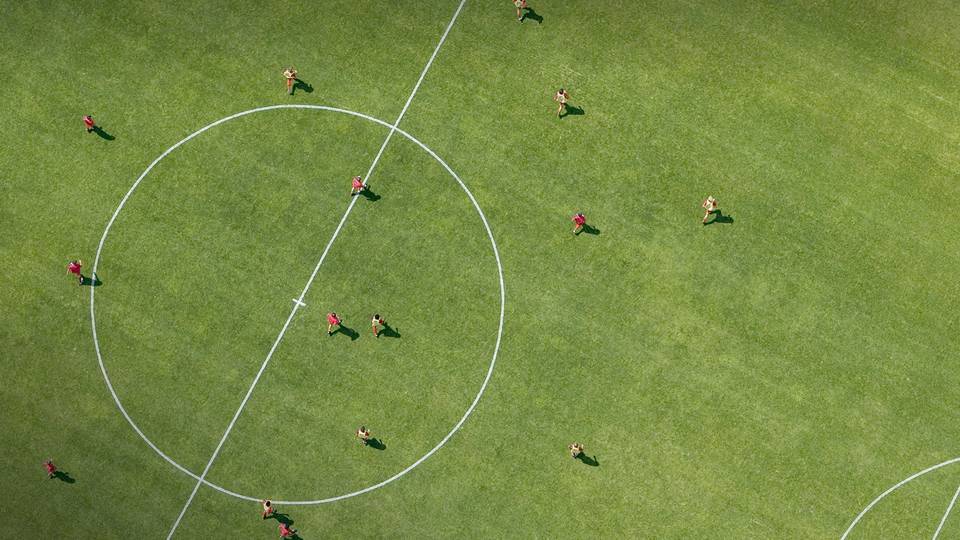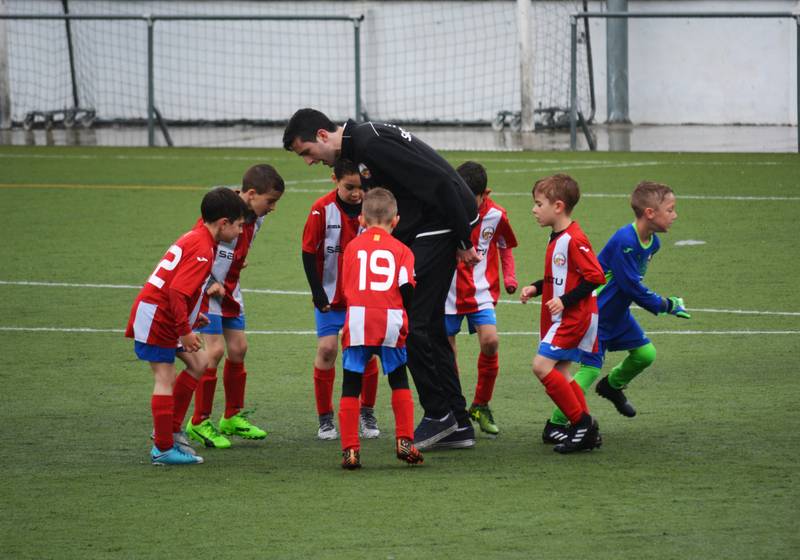Youth football at the U9 level represents a crucial stage in children's sporting development. This age group, typically comprising 8-9 year olds, forms a foundational period where young players begin to develop their technical abilities and understanding of the beautiful game. Organised U9 football provides children with structured coaching that balances skill development with enjoyment, fostering a love for the sport that can last a lifetime.
Across the UK, grassroots football organisations offer various competitive and developmental programmes for U9 teams. These structured environments allow young players to progress at an appropriate pace while learning essential skills like passing, dribbling, and positional awareness. Many local clubs and county football associations run leagues specifically designed with modified rules to suit this age group, ensuring matches remain inclusive and enjoyable.
The focus at U9 level should always be on participation and development rather than competitive outcomes. While the transition from the playground to organised football may seem daunting to parents unfamiliar with the youth football landscape (sometimes referred to as "soccer" in other regions), the supportive community of volunteer coaches, referees and administrators helps create a positive atmosphere for children's first steps into team sports.
Understanding U9 Football
U9 football represents a critical developmental stage where young players begin to grasp fundamental football concepts while building essential skills. This age group typically shows increased awareness of positional play and starts developing both individual technique and basic tactical understanding.
Foundations of U9 Football
U9 football typically features smaller-sided games, usually 7v7, played on appropriately sized pitches with modified goals. These adaptations create an environment where children can meaningfully engage with the ball and develop core skills.
Players at this age are developing their coordination rapidly, making it an ideal time to introduce more structured technical work. The focus remains on fun and participation, with all players receiving equal game time regardless of ability.
Training sessions should be short (60-75 minutes) with frequent breaks and plenty of ball contact. Coaches should prioritise activities that develop ball mastery, basic passing, and receiving skills.
Matches at this level often don't emphasise league tables or competitive outcomes. Instead, they serve as opportunities for players to apply skills in a supportive environment.
Development Goals for U9 Players
The primary focus for U9 players should be technical development and building football awareness. Players should master basic ball control, short passing, and begin understanding simple positional concepts.
Coaches should introduce fundamental tactical concepts like depth, width and supporting teammates with the ball. Small-sided games and activities that require decision-making help develop this awareness naturally.
Physical development varies significantly at this age. Training should incorporate fundamental movement skills alongside football-specific activities. Balance, coordination and agility exercises benefit players' overall athletic development.
Psychological development is equally important. Players should be encouraged to be creative, make decisions, and learn from mistakes without fear. Positive reinforcement helps build confidence and fosters love for the game.
TeamStats.net features can help track individual progress across technical, tactical, physical and psychological areas, giving coaches valuable insights into each player's developmental journey in youth football.
Organising a U9 Football Club
Setting up a U9 football club requires careful planning and attention to several key areas. The foundation of any successful youth club is built on proper structure, clearly defined adult roles, and responsible handling of personal information.
Structuring Your Club
Begin by establishing a clear identity for your club. Choose a memorable name and develop a simple brand that resonates with children and parents alike. This helps create a sense of belonging and pride among your young players.
Register with your local Football Association to ensure your club is officially recognised. This provides access to leagues, insurance coverage, and support resources.
Create a club philosophy document that outlines your approach to player development. For U9s, this should emphasise fun, skill development, and equal playing time rather than focusing solely on match results.
Set up regular training sessions (typically 1-2 weekly) and determine your match schedule. U9 matches usually follow small-sided formats (5v5 or 7v7) with modified rules to encourage skill development.
Roles of Adult Members
Recruit a dedicated team of adults with clearly defined responsibilities. Essential roles include:
- Head Coach: Leads training sessions and matches
- Assistant Coach: Supports the head coach with drills and player management
- Team Manager: Handles administrative duties and parent communication
- Safeguarding Officer: Ensures child welfare protocols are followed
- Treasurer: Manages finances including fees and equipment purchases
All adults involved must complete DBS checks and appropriate safeguarding courses as required by the FA. This is non-negotiable for child protection.
Encourage parental involvement through volunteer opportunities like helping with kit, providing refreshments, or assisting with transport arrangements. This builds community around your team.
Regular communication among adult members keeps everyone aligned with the club's philosophy and goals for the children's development.
Privacy and Data Protection
Create robust systems for collecting and storing player information in compliance with UK data protection laws. This includes medical details, emergency contacts, and consent forms.
Only collect data that is absolutely necessary for running the club safely. Store information securely, preferably in digital format with password protection rather than in paper files.
Obtain explicit consent from parents before sharing any photographs or videos of children on social media or club websites. Some families may have valid privacy concerns.
Implement a clear communication protocol, preferably using a dedicated team platform rather than personal messaging apps. This helps maintain appropriate boundaries between coaches and families.
Review your data protection procedures annually to ensure continued compliance with regulations. Delete information promptly when children leave the club unless there's a legitimate reason to retain it.
Enhancing Player Experience
Creating an optimal environment for U9 players promotes both skill development and enjoyment. Well-structured experiences that consider both physical and emotional needs help young footballers thrive in their formative years.
Importance of a Positive Web Experience
A positive web experience is crucial for young players and their parents when accessing football club information and resources. Clear, intuitive websites help families stay informed about training schedules, match details and development plans. Functional cookies enhance this experience by remembering login details and preferences, making repeat visits more efficient.
Many grassroots clubs now utilise online platforms to share training videos and development tips that players can access at home. This continuation of learning beyond practice sessions accelerates skill development.
Parents particularly value mobile-friendly websites that allow them to check fixtures and locations whilst on the move. The best club websites include weather updates and pitch notifications to prevent wasted journeys to cancelled sessions.
Customization Through Personalisation
Personalisation in youth football creates more engaging experiences for U9 players. Coaches who tailor training sessions to individual skill levels see greater improvements across their squads. Position rotation, as highlighted by many youth soccer experts, helps youngsters develop a broader understanding of the game.
Personalised development plans give children achievable targets based on their current abilities. This approach builds confidence as players experience success at their own pace.
Digital tools allow coaches to track individual progress and identify specific areas for improvement. Platforms like teamstats.net enable coaches to record player participation and development metrics, helping them create more tailored training sessions.
Parents appreciate receiving personalised feedback about their child's progress and specific areas to practice at home. This collaborative approach between coaches, players and parents creates a supportive development environment that enhances the overall football experience.
Marketing and Promotions for U9 Football
Effective marketing is crucial for attracting players, volunteers and spectators to your U9 football programme. A strategic approach to promotion ensures sustainable growth and community engagement for your youth football organisation.
Identifying and Utilizing Traffic Sources
Creating a user-friendly website serves as your digital headquarters where parents can find essential information about your U9 team. Make it mobile-responsive as many parents will browse on their phones.
Social media platforms are vital traffic sources for youth football promotion. Establish accounts on Facebook, Instagram and Twitter to share match highlights, training photos and announcements.
Local community groups, primary schools and sports centres represent valuable offline traffic sources. Distribute eye-catching flyers with clear contact information and registration details at these locations.
Email newsletters maintain engagement with existing families. Send updates about fixtures, achievements and upcoming events to keep your community informed and involved.
Text messaging systems work brilliantly for urgent updates like match cancellations due to poor weather conditions. TeamStats.net offers integrated messaging features that many UK grassroots clubs find invaluable for quick communication.
Collaboration With Advertising Partners
Local businesses often welcome opportunities to support youth football. Approach nearby shops, restaurants and services about sponsorship arrangements that benefit both parties.
Potential Partnership Opportunities:
- Kit sponsorship with business logos
- Match programme advertisements
- Pitch-side banners and signage
- Trophy and equipment donations
Target your sponsorship requests to businesses that align with family and sporting values. Parents of U9 players make excellent potential partners as they have a vested interest in the team's success.
Engage with local media outlets including community newspapers and radio stations. These platforms frequently cover youth sports and can provide valuable exposure at no cost.
Consider collaborative events with other sports organisations in your area. Joint open days or mini-tournaments can help raise awareness and create cross-promotional opportunities within the local football community.












